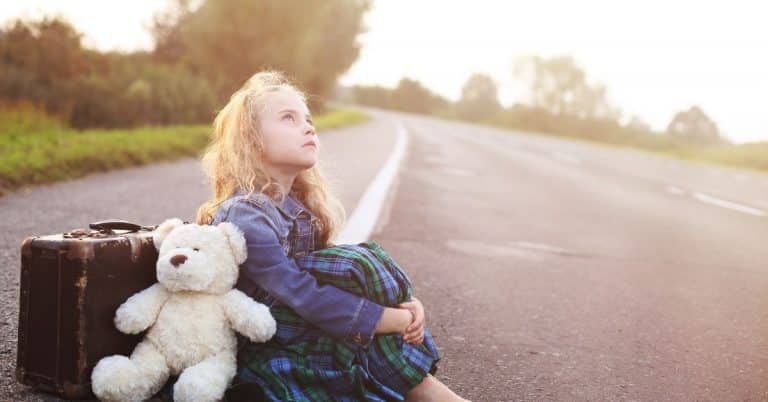Adults Need To Know Their Child Trauma
Child trauma has lasting impact because we don’t forget and get over the painful effects of abuse, neglect, or heartbreaking incidents. Lasting impact from war, discrimination, addiction, family dysfunction are just some of the ways that our brains are affected.
From Dr. Tian Dayton, Forgiving Parents: Breaking the Chain of Anger, Resentment and Pain – Triggered pain is so confusing to decode and deal with. Primarily, emotional responses to trauma are recorded by the parts of the brain that were developed early in our evolution. This area of brain memory is often referred to as the “reptilian” or “old” brain.
The Brain Freezes Painful Child Trauma
The cortex is where we do much of our critical thinking. It’s where we think about what we’re feeling and make sense of it. When we were deeply hurt, say as children, we may have been too scared or frozen to process what was happening around us. The cortex didn’t modulate the memory. Our child-aged brain wasn’t mature enough to:
- Reflect upon
- Think about
- Quantify or
- Categorize particular painful events
Thus, they could not be worked through, nor could we rationally read the situation. Many of us were left to make sense of the trauma, only using the powers of reason and the emotional maturity available to us at the time.
The adults in the situation were often too preoccupied with their own problems. The didn’t help us understand what was happening around us. As a result, when these fragments of unprocessed memory get triggered in the present, they have no context. They’re all out of order and can get mindlessly blasted onto the surface of our current lives.
We feel like we felt when the original events happened: defenseless and vulnerable, with whoever hurt us having all the power.
These intense feelings seems to relate only to the current situation but, in truth, our past is co-mingling with present. Even though they originated in the past, they get interpreted as if it belongs exclusively to the present. We end up trying to make sense of an adult situation through our child mind.
Child Trauma Needs Adult Attention
It helps if we’re on speaking terms with that part of us. When the child self gets scared and wants to hide or hit or cry or yell, our adult self can help. Our adult self can recognize what’s going on and extends a secure hand to their small fingers. This is how we grow. This is also how we can keep the innocence, talent, spontaneity and creativity that is also part of this side of us, and still function as reasonably healthy adults.
You notice I say reasonably. I think psychology has unwittingly put forward some unattainable idea of the “model” person that is about as far flung from the actual norm as a size four is for the average American woman. It just isn’t what’s out there, and if we hold ourselves to that standard we’ll only feel bad. We’re all only human, why should we kill ourselves trying to be perfect?
Women’s Bodies Handle Trauma Differently
Think of trauma in evolutionary terms. Early woman had a lot to worry about. So nature, in its infinite wisdom, built a protective apparatus into her. When she sensed that she was in danger, she went into the protective modes that nature encoded into her. Extreme states of fear cause the body to spurt chemicals like epinephrine and norepinephrine, both of which are associated with standing and fighting or fleeing for safety, commonly known as the fight-or-flight response.
In women, however, more recent research reveals that oxitocin is also released. According to a recent UCLA study by Drs. Klein and Taylor, women even “respond to stress with a cascade of brain chemicals that cause us to make and maintain friendships with other women.” In other words, our survival mode is connect and nurture, not only fight or flight. This “touch” chemical encourages women to bond with other women, and to take care of children and get them to safety.
More Articles To Read About Child Trauma
Silent Wounds, Childhood Trauma
Tips For Recovering From Childhood Trauma
Trauma In Mental Health Treatment
How Women’s Trauma Impact Addiction Treatment





















